Previously published (14/3/96) by the University of Chicago Chronicle.
As a child growing up in rural China, Dali Yang, Assistant Professor in Political Science, heard the stories of his parents and others about the horrors of the Great Leap Forward, a time of suffering for China that came soon after the Communist revolution in 1949.
"My parents were peasants who worked in the field. We grew wheat in the area where I lived, and they were part of a production team," said Yang, who was born in 1964, three years after the Great Leap Forward had ended. "They would often bring up the topic of the Great Leap famine and tell how bad things were during that time."
Yang's curiosity about the period led him to write the book Calamity and Reform in China: State, Rural Society and Institutional Change Since the Great Leap Famine, to be published this spring by Stanford University Press. The book, one of the first major works to analyze the period, relates how the Great Leap Forward and the subsequent famine still influence China today.
Unlike the later Cultural Revolution, which is well known in the West, the Great Leap Forward has been less of a focus for research by Western scholars -- yet, according to Yang, it was one of the most influential periods of Chinese history. It was the pivotal event that led China to adopt reforms in rural areas after Mao's death in 1976, resulting in the dismantlement of the people's communes that the Chinese government had fervently advocated during the Great Leap Forward.
Communist dream leads to mass death
The Great Leap Forward was begun in 1957 by Chairman Mao Zedong to bring the nation quickly into the forefront of economic development. Mao wanted China to become a leading industrial power, and to accomplish his goals he and his colleagues pushed for the construction of steel plants across the country.
The rural society was to keep pace with the dream by producing enough food to feed the country plus enough for export to help pay for industrialization. As a result of the Communist revolution, landowners had been stripped of their property, and by 1957 peasants already were forced to work in agricultural cooperatives.
These changes were intended to improve conditions for everyone by collectivizing agriculture and establishing communal eating facilities where peasants could eat all they wanted free of charge. This utopian dream turned into a nightmare as the central leadership grew increasingly out of touch with reality, Yang found through his study of government records and personal accounts.
At the beginning of the Great Leap Forward, Mao proclaimed that China would overtake Britain in production of steel and other products within 15 years. Other Chinese leaders, including Deng Xiaoping, supported Mao's enthusiasm, according to documents Yang studied in China.
A year later, Mao radically revised the timeline for catching up to Britain -- what was to be accomplished in 15 years now had to be done in just one more year, he said.
"Frequent changes in the timetable were symptomatic of the Great Leap, which, in retrospect, was fantasy incarnate. Even more exaggerated targets were subsequently presented, and then frequently revised upward, for steel, grain, cotton and other products. Any semblance of serious planning was abandoned," Yang said.
In pursuit of its goals, the government executed people who did not agree with the pace of radical change. The crackdown led to the deaths of 550,000 people by 1958.
The government also plunged the country into a deep debt by increasing spending on the development of heavy industry. Government spending on heavy industry grew in 1958 to represent 56 percent of state capital investment, an increase from 38 percent in 1956.
People were mobilized to accomplish the goals of industrialization. They built backyard furnaces for iron and steel and worked together on massive building projects, including one undertaken during the winter of 1957-58 in which more than 100 million peasants were mobilized to build large-scale water-conservation works.
Local leaders competed with one another to see who could create the most activity. In the rush to recruit labor, agricultural tasks were neglected, sometimes leaving the grain harvest to rot in the fields, Yang said. In the frenzy of competition, the leaders over-reported their harvests to their superiors in Beijing, and what was thought to be surplus grain was sold abroad.
Although in theory the country was awash in grain, in reality it was not. Rural communal mess halls were encouraged to supply food for free, but by the spring of 1959, the grain reserves were exhausted and the famine had begun.
No one is sure exactly how many people perished as a result of the spreading hunger. By comparing the number of deaths that could be expected under normal conditions with the number that occurred during the period of the Great Leap famine, scholars have estimated that somewhere between 16.5 million and 40 million people died before the experiment came to an end in 1961, making the Great Leap famine the largest in world history.
People abandoned their homes in search of food. Families suffered immensely, and reports of that suffering reached the members of the army, whose homes were primarily in rural areas. As soldiers received letters describing the suffering and the deaths, it became harder for leaders to maintain ideological discipline. Chaos developed in the countryside as rural militias became predatory, seizing grain, beating people and raping women. From famine to reform
During the struggle for survival, farmers in nearly one-third of the rural communities took matters into their own hands, abandoning the people's commune in favor of individual farming. Heavy central control was reduced, and the country's agricultural production improved.
Following Mao's death in 1976, central leaders disagreed over rural policies. Taking advantage of this policy paralysis, peasants and local cadres made alliances in those areas that had suffered severely from the Great Leap Famine and contracted land to the farm household. In just a few years' time, the people's communes were dismantled. Agricultural performance improved dramatically and gave momentum to the reforms under Deng.
The memory of the famine reinforced the important role peasants play in China's development, Yang said. That memory also has undermined the appeal of central planning in rural policy-making.
"Historical developments during more than four decades of Communist rule in China have again and again shown us how the unanticipated consequences of elite policies subverted their attempts at fundamental social engineering," Yang writes in Calamity and Reform in China. Institutional changes in China are the result of a contest between the elite and the masses, between the state and the society, he said.
"This study thus points to the crucial importance of guarding against those who claim to know some magic route to the radiant future, be they politicians like Mao or party intellectuals who supported Mao or the new technocrats who claim to have found a scientific way to make China rich and powerful and who happily clamor for more power for themselves."
The best way to prevent the country from following another movement like the Great Leap Forward is to create mechanisms that check those in power, Yang said.
"Had there been a free press and other institutions of oversight that are commonly found in open political systems, the Great Leap famine would certainly not have attained the magnitude it did," said Yang, who continues to follow events in China through visits there as he develops his academic career in the United States.
Yang became interested in the social sciences as a college student in Beijing, where he studied engineering. He received his B.S. in industrial engineering in 1983 from Beijing University of Science and Technology and developed an interest in English, which led him to receive his diploma for advanced studies in English in 1984 from Beijing Foreign Studies University.
He came to the United States to pursue graduate studies in political science in 1986 and received his Ph.D. from Princeton in 1993, the same year he joined the Chicago faculty.
Although he does not see rapid democratization coming to China, he has noticed some indications of ways in which the system there is beginning to rein in the excess power of overzealous leaders. "To some extent the trend toward decentralization, market-based competition and legal rule has spread decision-making power throughout the system," he said.
The new leadership is, however, "tentative, reactive and at times schizophrenic," Yang said. "They are less driven by firm ideological convictions than by sheer desire to remain in power.
"The balance between the state and society thus appears precarious, but it is also less susceptible to elite manipulations and more likely to produce policies dealing with the concrete problems that crop up in a state that is undergoing rapid economic development and social change."
-- William Harms
 There has been a massive four-day Peace conference in Sana'a, Yemen, conducted by Houthis of the Ansar Allah Government of Yemen, with delegates from numerous countries, including China and South Africa.
There has been a massive four-day Peace conference in Sana'a, Yemen, conducted by Houthis of the Ansar Allah Government of Yemen, with delegates from numerous countries, including China and South Africa.

 In a media release on 17 July 2023, Annette Brownlie of the
In a media release on 17 July 2023, Annette Brownlie of the  With the atrocious China-bashing going on in Australia at the moment, mirroring US policy, we decided to republish the concisely expressed views of an American living in China. The comments under the video indicate a general approval of his appraisal by people who are familiar with Chinese life. His main criticism of China is the media censorship, which commenters suggest has worsened along with US China-bashing.
With the atrocious China-bashing going on in Australia at the moment, mirroring US policy, we decided to republish the concisely expressed views of an American living in China. The comments under the video indicate a general approval of his appraisal by people who are familiar with Chinese life. His main criticism of China is the media censorship, which commenters suggest has worsened along with US China-bashing. One of the many, many signs that Australia is nothing more than a US military and intelligence asset is the way its government has consistently refused to intervene to protect Australian citizen Julian Assange from political persecution at the hands of the US empire.
One of the many, many signs that Australia is nothing more than a US military and intelligence asset is the way its government has consistently refused to intervene to protect Australian citizen Julian Assange from political persecution at the hands of the US empire. Video of speakers and informed discussion from a large Australian audience of activists re Australia's mounting involvement in US-NATO warmongering and costly and inappropriate weapons purchase. The Stop Aukus movement came out of a coalition of anti-war movements, notably IPAN, and features Australians who have never stopped being involved in our anti-war movement, and who have rich experience and knowledge to offer other Australians whose education, via media or schools, has been lacking.
Video of speakers and informed discussion from a large Australian audience of activists re Australia's mounting involvement in US-NATO warmongering and costly and inappropriate weapons purchase. The Stop Aukus movement came out of a coalition of anti-war movements, notably IPAN, and features Australians who have never stopped being involved in our anti-war movement, and who have rich experience and knowledge to offer other Australians whose education, via media or schools, has been lacking. Melbourne State Library 1 pm Saturday 18 March against AUKUS US $170b nuclear sub purchase and alliance
Melbourne State Library 1 pm Saturday 18 March against AUKUS US $170b nuclear sub purchase and alliance 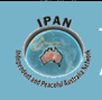
 Australia's high density buildings are not designed to mitigate the spread of a virus as they have poor air circulation, insufficient balconies, and are usually designed for people who are away all day and only home to sleep. Our cities do not have enough open space areas for residents in high density apartments to escape to, yet we are still inundated with business and media statements extolling the benefits of population growth that can be accommodated in ever higher densitie
Australia's high density buildings are not designed to mitigate the spread of a virus as they have poor air circulation, insufficient balconies, and are usually designed for people who are away all day and only home to sleep. Our cities do not have enough open space areas for residents in high density apartments to escape to, yet we are still inundated with business and media statements extolling the benefits of population growth that can be accommodated in ever higher densitie The US is establishing Australia as a proxy in a war against China; Prime Minister Albanese must stand up to the US and say NO to nuclear-capable B-52 bombers stationed on our territory; Australia must stay out of any US plans for a war against China. As revealed by the ABC in an investigative report on 31 October 2022, the United States has been secretly planning to station six, B-52 long range bombers in the NT, each capable of carrying conventional or nuclear payloads.
The US is establishing Australia as a proxy in a war against China; Prime Minister Albanese must stand up to the US and say NO to nuclear-capable B-52 bombers stationed on our territory; Australia must stay out of any US plans for a war against China. As revealed by the ABC in an investigative report on 31 October 2022, the United States has been secretly planning to station six, B-52 long range bombers in the NT, each capable of carrying conventional or nuclear payloads.
 This article elaborates 8 reasons why Australia should not hitch its wagon to the US war-machine. The author, John Menadue, has a multi-author website called Pearls and Irritations, which contains many excellent articles on public policy. Menadue has a long political history and was private secretary to Whitlam.
This article elaborates 8 reasons why Australia should not hitch its wagon to the US war-machine. The author, John Menadue, has a multi-author website called Pearls and Irritations, which contains many excellent articles on public policy. Menadue has a long political history and was private secretary to Whitlam. U.S. government strategists are using sanctions as a wrecking ball to demolish the globalized economy. It is a desperate struggle to preserve their global hegemony and a unipolar world. The policy of consciously demolishing supply chains of essential products amounts to a reckless war on defenseless civilian populations. Sanctions disrupt trade worldwide and send shockwaves far beyond the countries directly targeted. This is well understood by financial planners.
U.S. government strategists are using sanctions as a wrecking ball to demolish the globalized economy. It is a desperate struggle to preserve their global hegemony and a unipolar world. The policy of consciously demolishing supply chains of essential products amounts to a reckless war on defenseless civilian populations. Sanctions disrupt trade worldwide and send shockwaves far beyond the countries directly targeted. This is well understood by financial planners.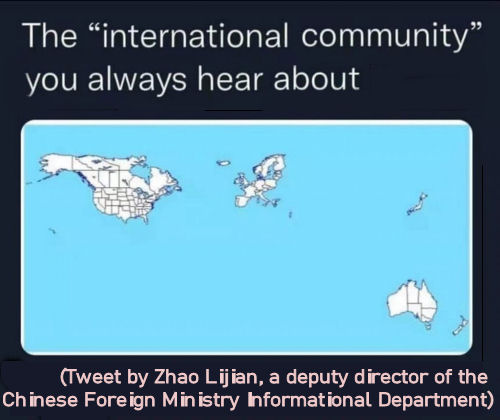
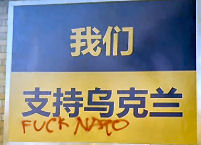 1.The Chinese Ministry of Foreign Affairs published a document on the history of U. S. genocide against Native Americans on their official website. Currently trending on Weibo, and being promoted by People’s Daily and other major media accounts. Yesterday, a recent documentary about U. S. military experiments on Danish children during the 1960s was one of the major trending items.
1.The Chinese Ministry of Foreign Affairs published a document on the history of U. S. genocide against Native Americans on their official website. Currently trending on Weibo, and being promoted by People’s Daily and other major media accounts. Yesterday, a recent documentary about U. S. military experiments on Danish children during the 1960s was one of the major trending items.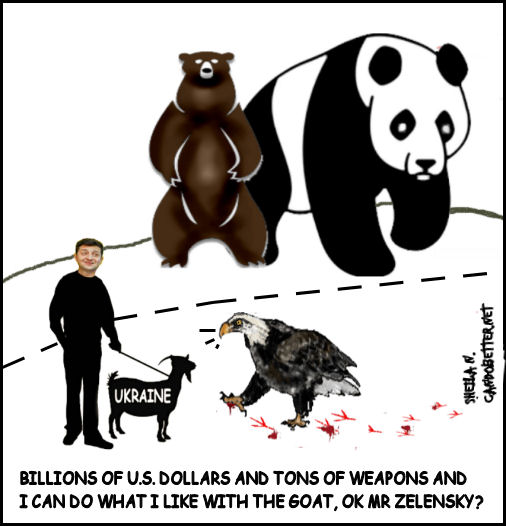
 Bizarrely, this has hardly been reported anywhere! It was Putin's initiative and Biden has signed up to it along with the other countries, excepting Israel, India, and Pakistan and North Korea.
Bizarrely, this has hardly been reported anywhere! It was Putin's initiative and Biden has signed up to it along with the other countries, excepting Israel, India, and Pakistan and North Korea. Australian peace, environmental and other activists and organisations are opposed to the Morrison Government decision to join the trilateral security agreement between Australia, the United Kingdom and the United States (AUKUS) and the development of nuclear submarines.
Australian peace, environmental and other activists and organisations are opposed to the Morrison Government decision to join the trilateral security agreement between Australia, the United Kingdom and the United States (AUKUS) and the development of nuclear submarines.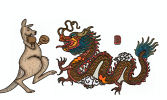 - Monumental foreign policy decisions cannot be made without any public engagement behind closed doors.
- Monumental foreign policy decisions cannot be made without any public engagement behind closed doors.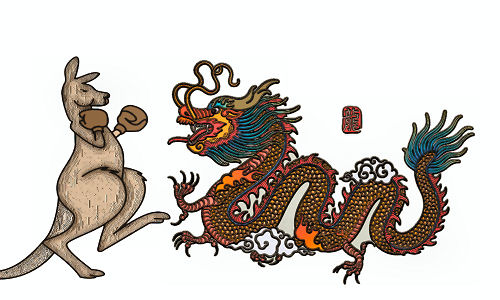


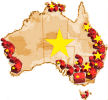 Chinese investors
Chinese investors 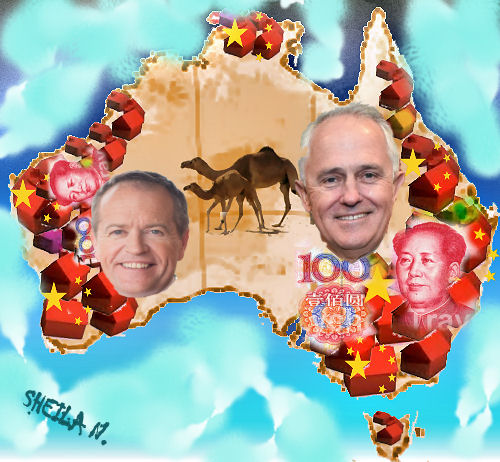
 Brilliant Iranian interviewer Kaveh Taghvai's questions on the subject are inspired in this debate - more of a discussion - between J. Michael Springmann, a former US diplomat, and Michael Lane, the founder of American Institute for Foreign Policy, both from Washington. The two guests and the interviewer all have an unusually deep grasp of the drivers of turmoil in the region and of the foreign players involved. We get some very interesting new perspectives and interpretations of the latest moves around Syria. For instance, Turkey's position is often hard to fathom. We know it wants to take land from the north of Syria, whilst pretending to be maintaining safe zones. We know it wants to drive the Kurds back, but the usefulness of the refugee camps for Turkey as a military buffer may not have occurred to everyone. And, why did the United States bother to try to get votes on a draft UNSC resolution to sanction Syria for alleged poison gas incidents, when it would know that Russia would veto these highly dubious allegations? And China! We hear some new ideas on the motive, in terms of bargaining chips. In this episode of The Debate, Press TV has brought out layered and thoughtful explanations and comment on the foreign-backed war on Syria, particularly a Western-proposed UNSC draft resolution against the Syrian government that was vetoed by Russia and China.
Brilliant Iranian interviewer Kaveh Taghvai's questions on the subject are inspired in this debate - more of a discussion - between J. Michael Springmann, a former US diplomat, and Michael Lane, the founder of American Institute for Foreign Policy, both from Washington. The two guests and the interviewer all have an unusually deep grasp of the drivers of turmoil in the region and of the foreign players involved. We get some very interesting new perspectives and interpretations of the latest moves around Syria. For instance, Turkey's position is often hard to fathom. We know it wants to take land from the north of Syria, whilst pretending to be maintaining safe zones. We know it wants to drive the Kurds back, but the usefulness of the refugee camps for Turkey as a military buffer may not have occurred to everyone. And, why did the United States bother to try to get votes on a draft UNSC resolution to sanction Syria for alleged poison gas incidents, when it would know that Russia would veto these highly dubious allegations? And China! We hear some new ideas on the motive, in terms of bargaining chips. In this episode of The Debate, Press TV has brought out layered and thoughtful explanations and comment on the foreign-backed war on Syria, particularly a Western-proposed UNSC draft resolution against the Syrian government that was vetoed by Russia and China.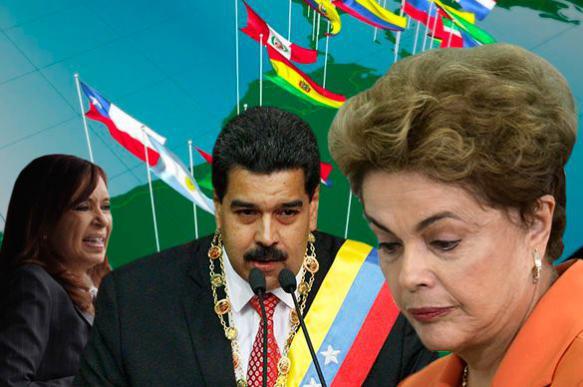


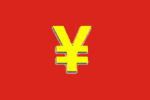 The Vietnam War led by the US spanned most of the 1960s through to 1975. The famous motto “All the way with LBJ” developed as a result of Australian PM Harold Holt’s commitment to military support of the US led War in collaboration with Lyndon Baines Johnson, the US President.
The Vietnam War led by the US spanned most of the 1960s through to 1975. The famous motto “All the way with LBJ” developed as a result of Australian PM Harold Holt’s commitment to military support of the US led War in collaboration with Lyndon Baines Johnson, the US President.
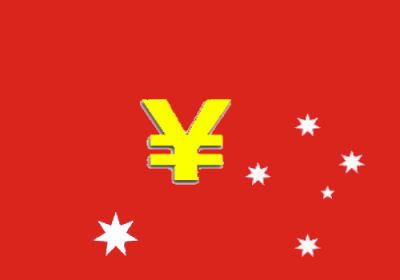 They are buying houses and farms in order to exploit opportunities for profit, including removal of food from Australia. We have empty houses throughout the suburbs of capital cities that may have been purchased to diversify some foreigner's asset portfolio.
They are buying houses and farms in order to exploit opportunities for profit, including removal of food from Australia. We have empty houses throughout the suburbs of capital cities that may have been purchased to diversify some foreigner's asset portfolio. 
Recent comments